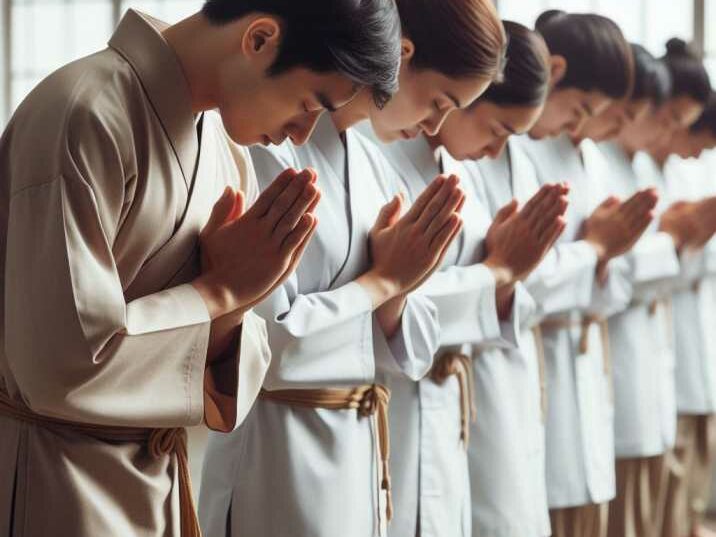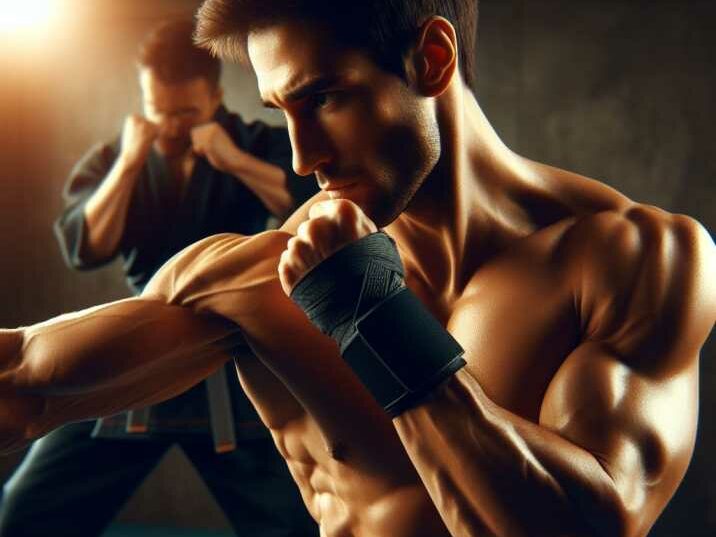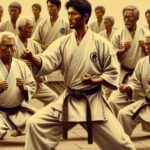Introduction:
Table of Contents
Karate, a traditional Japanese martial art, has captivated practitioners and enthusiasts worldwide for centuries. Its principles are deeply rooted in discipline, respect, and continuous self-improvement. Mastery of Karate goes beyond physical techniques, encompassing mental fortitude and spiritual growth. In this extensive article, we will embark on a journey to uncover the main principles of Karate, shedding light on its rich history and timeless wisdom.
Main Principles of Karate:
Here are some main famous principles of Karate like,
1. The Way of the Empty Hand
Karate, often referred to as the “Way of the Empty Hand,” emphasizes the use of unarmed techniques for self-defense. This principle underscores the philosophy of utilizing one’s body as a weapon, honed through years of dedicated training and practice. The term “empty hand” symbolizes more than the absence of weapons; it embodies the practitioner’s readiness to defend themselves using only their physical prowess and mental acuity.
2. Respect (Rei)
Respect, or “Rei” in Japanese, lies at the core of Karate philosophy. Practitioners are taught to show respect not only towards their instructors and fellow students but also towards the art itself. This principle is exemplified through rituals such as bowing, which serves as a gesture of humility and acknowledgment. By fostering a culture of respect within the dojo, Karate instills values that extend beyond the training mat and into everyday life.

3. Discipline (Seishin)
Discipline, or “Seishin,” is a fundamental aspect of Karate training. Practitioners adhere to strict training regimens, committing themselves to regular practice and repetition of techniques. Through discipline, students cultivate mental fortitude and perseverance, essential qualities for overcoming challenges both inside and outside the dojo. The rigorous nature of Karate training instills a sense of responsibility and self-control, shaping practitioners into well-rounded individuals.
4. Focus (Kime)
Focus, known as “Kime” in Karate terminology, is the ability to concentrate one’s energy and attention with precision. In the context of Karate, focus is essential for executing techniques with maximum effectiveness and efficiency. Practitioners train to harness their mental and physical faculties, directing them towards a singular objective. Whether delivering a punch, kick, or block, the practitioner’s focus determines the outcome of their actions, making it a cornerstone of Karate practice.

5. Continuous Improvement (Kaizen)
Karate embraces the principle of “Kaizen,” which translates to continuous improvement. This philosophy encourages practitioners to strive for excellence in all aspects of their training and personal development. Through self-reflection and a commitment to ongoing learning, practitioners seek to refine their skills and deepen their understanding of Karate’s principles. The journey of Kaizen is not limited by age or skill level; rather, it is a lifelong pursuit of self-mastery and growth.
Table of Information Principles of Karate :
| Principle | Description |
|---|---|
| The Way of the Empty Hand | Emphasizes unarmed techniques for self-defense. |
| Respect (Rei) | Core principle highlighting humility and courtesy. |
| Discipline (Seishin) | Fundamental to Karate training, promoting perseverance. |
| Focus (Kime) | Essential for technique execution and mental clarity. |
| Continuous Improvement (Kaizen) | Encourages lifelong pursuit of mastery and self-reflection. |
Conclusion:
In conclusion, the main principles of Karate encapsulate a holistic approach to martial arts training, encompassing physical, mental, and spiritual dimensions. By embracing the Way of the Empty Hand, practitioners embark on a journey of self-discovery and transformation. Through respect, discipline, focus, and continuous improvement, Karate offers not only a means of self-defense but also a path towards personal empowerment and fulfillment.
FAQs:
Q1: What does “Karate” mean?
A1: Karate translates to “empty hand” in Japanese, emphasizing the use of unarmed techniques for self-defense.
Q2: Why is respect important in Karate?
A2: Respect (Rei) is fundamental in Karate, fostering humility, courtesy, and discipline among practitioners.
Q3: How does Karate promote discipline?
A3: Karate instills discipline (Seishin) through rigorous training regimens, repetition, and perseverance.
Q4: What is the significance of focus in Karate?
A4: Focus (Kime) is crucial in Karate, sharpening mental clarity and enhancing technique execution.
Q5: How can one achieve continuous improvement in Karate?
A5: Karate embraces the principle of continuous improvement (Kaizen), encouraging practitioners to strive for perfection and self-reflection.

